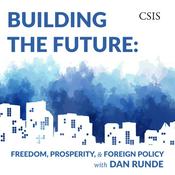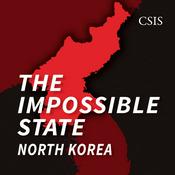188 episodes
- The Horn of Africa is experiencing a profound, and dangerous geopolitical restructuring. From the war in Sudan, to renewed tension between Ethiopia and Eritrea, to rising security challenges in South Sudan, and Somalia’s governance struggles alongside ripple effects from Somaliland’s bid for international recognition, the region’s internal instability and volatility is reshaping international alliances and fueling a fierce competition for influence by global actors – from the Gulf to the West – who are vying for power, maritime routes, and strategic dominance. Samira Gaid, founding director of Balqiis Insights, and Amb (ret). Donald Booth, former U.S. special envoy to Sudan and South Sudan, join Oge for a discussion that illuminates a few key dynamics shaping the geopolitics in the Horn of Africa. They unpack the different players in the arena, their motivations, and what these dynamics mean for the region, and the global community.
- In the first episode of this season, Oge is joined by Fonteh Akum, Executive Director of the Institute for Security Studies (ISS), and Raymond Gilpin, Chief Economist and Head of Strategy at UNDP’s Regional Bureau for Africa, to reflect on the defining moments of 2025 and explore what 2026 may hold for the continent.
While 2025 brought few surprises, it reinforced trends that had long been taking shape on the continent. From the drastic shift in U.S. policy toward Africa to the spread of youth movements, evolving security challenges, and shifting economic dynamics, these trends define a pivotal moment for the continent. Economically, Africa continued its recovery from the long-term impacts of COVID-19, alongside a notable shift in investment from the public sector toward the private sector. Looking ahead to 2026, the conversation underscores the importance of consistency and of connecting the dots between security, development, finance, and governance. - Into Africa is back with all-new conversations hosted by Oge Onubogu, senior fellow and director of the Africa Program at CSIS. Tune in starting January 15th for in-depth interviews with journalists, academics, and other trailblazers as we discuss the cultural, political, and economic trends shaping the continent.
Back to basics: Africa’s bid for two permanent UNSC seats (with Amb. Martin Kimani)
2025/9/11 | 59 mins.Since this episode aired last year, we’re still dreaming of a just and representative global order. Catherine Nzuki was joined by Ambassador Martin Kimani, PhD, the Executive Director of New York University’s Center on International Cooperation. He was previously the Permanent Representative of Kenya to the United Nations (UN).
In this episode, we take a deep dive into Africa’s bid for two permanent seats on the UN Security Council (UNSC) and the long road to get there. We discuss how long Africa has been pushing for these seats (3:40); the procedure to create the two permanent seats (7:00); why the process of selecting which African state will occupy those seats could cause infighting (15:20); and two scenarios for how these seats could be distributed (19:40).
We zoom out to discuss the deficit of visionary contemporary leaders (30:18); the types of reforms that the African Union needs (34:42); Africa’s demographic dividend (36:00); Africa in the G20 (42:30); and finally, reordering global geography in line with Africa’s own interests (45:00).- Catherine's taking a break this week. In the meantime, we want to reshare one of our essential episodes on demographics. As you all know, by 2050, one in four people will be African. How do demographers reach this conclusion? And how does Africa's population growth intersect with population declines in the Global North?
To answer these questions, Catherine was joined by Dr. Jennifer D. Sciubba, President and CEO of the Population Reference Bureau and one of the foremost experts in the field of political demography.
Dr. Sciubba breaks down how demographers project future populations and the drivers of population growth. They discuss the limited window to take advantage of Africa’s demographic dividend, the population decline debate in the West, and why overpopulation is a contentious term. They also discuss how politics, cultural norms, women’s empowerment, and the autonomy to not have children factor into population growth.
Book recommendation: States and Nature (The Politics of Climate Change) by Joshua W. Busby.
More Business podcasts
Trending Business podcasts
About Into Africa
Fearless music activists. Savvy tech entrepreneurs. Social disrupters. Into Africa shatters narratives that dominate U.S. perceptions of Africa. With the world’s youngest population, the decisions made across Africa today—good or bad—will shape the world’s future. Featuring in-depth interviews, the CSIS Africa Program sits down with policymakers, journalists, academics, and other trailblazers in African affairs to shine a spotlight on the people and stories shaping cultural, political, and economic trends across the continent today and for decades to come.
Podcast websiteListen to Into Africa, Honest Money and many other podcasts from around the world with the radio.net app
Get the free radio.net app
- Stations and podcasts to bookmark
- Stream via Wi-Fi or Bluetooth
- Supports Carplay & Android Auto
- Many other app features
Get the free radio.net app
- Stations and podcasts to bookmark
- Stream via Wi-Fi or Bluetooth
- Supports Carplay & Android Auto
- Many other app features

Into Africa
Scan code,
download the app,
start listening.
download the app,
start listening.





































